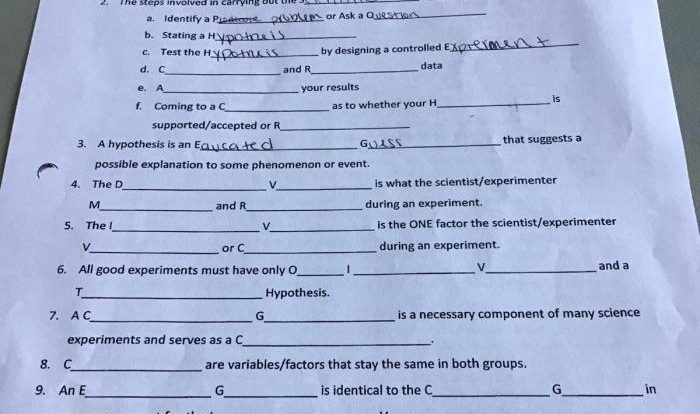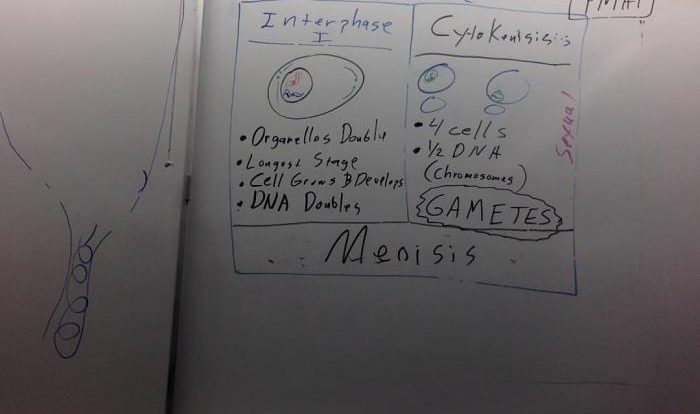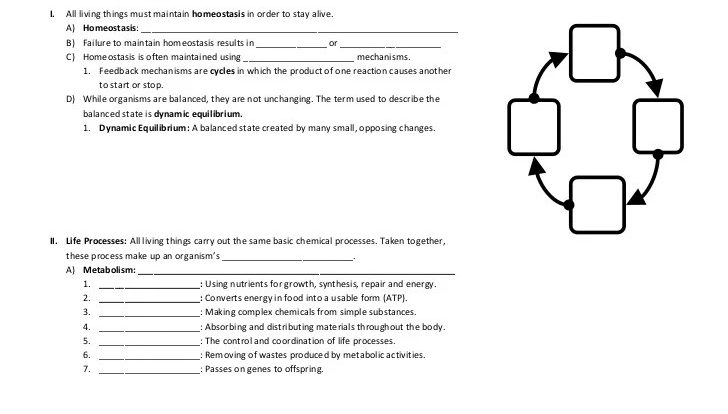Welcome to the ultimate guide to DNA task cards answer sheets! This comprehensive resource will delve into the world of DNA task cards, their educational benefits, and how to create an effective answer sheet for students. Dive in and discover the secrets to unlocking the mysteries of DNA with ease and efficiency.
DNA task cards are a powerful tool for engaging students in the study of DNA structure, replication, and genetics. These versatile cards provide a hands-on, interactive approach to learning that fosters critical thinking and problem-solving skills.
DNA Task Cards
DNA task cards are a valuable educational tool that enhances students’ understanding of deoxyribonucleic acid (DNA) and its fundamental role in genetics and cellular processes.
These versatile cards provide an interactive and engaging learning experience, catering to different learning styles and assessment needs.
Types of DNA Task Cards
DNA task cards encompass a wide range of topics, each addressing specific aspects of DNA structure, replication, and genetics.
- Structure Task Cards:Focus on the components and organization of DNA, including nucleotides, base pairing, and the double helix model.
- Replication Task Cards:Explore the process of DNA replication, highlighting the roles of enzymes, unwinding proteins, and the leading and lagging strands.
- Genetics Task Cards:Delve into the principles of genetics, covering topics such as Mendelian inheritance, gene expression, and genetic disorders.
Answer Sheet: Dna Task Cards Answer Sheet
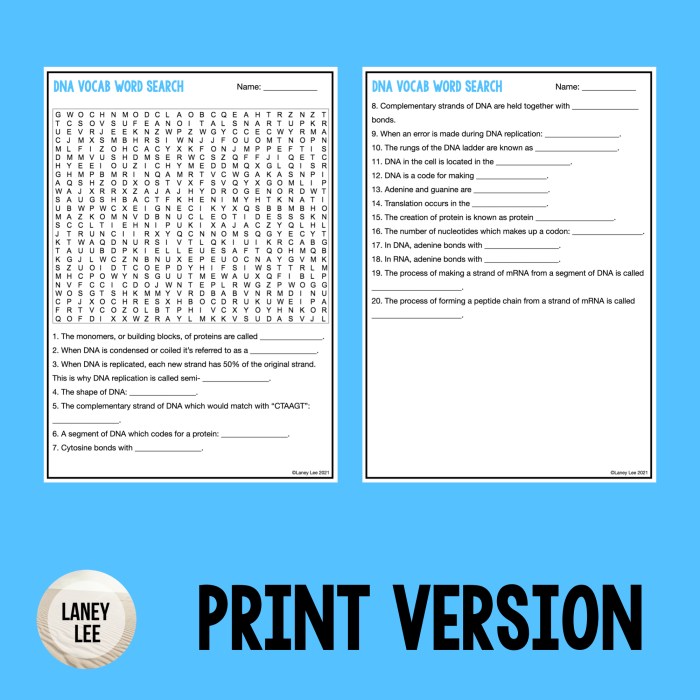
This answer sheet provides a structured template for recording answers to DNA task cards. It is organized into sections based on the topics covered by the cards, ensuring a logical and easy-to-navigate format for students.
DNA Structure
Record your answers to questions about the structure and components of DNA.
- Nitrogenous bases present in DNA
- Number of hydrogen bonds between adenine and thymine
- Shape of the DNA molecule
DNA Replication
Provide answers related to the process of DNA replication.
- Enzyme responsible for unwinding the DNA double helix
- Function of RNA primers
- Differences between leading and lagging strands
- Process that converts DNA into mRNA
- Role of ribosomes in protein synthesis
- Structure of tRNA
- Principle behind PCR
- Applications of genetic engineering
- Ethical considerations in DNA technology
- Accuracy:Responses should accurately reflect the scientific concepts and information presented in the task cards.
- Completeness:Responses should address all aspects of the question or task, providing sufficient detail and evidence to support their answers.
- Critical Thinking:Responses should demonstrate the student’s ability to analyze, interpret, and apply the information presented in the task cards to solve problems or draw conclusions.
- Warm-up activities:Engage students at the beginning of class with quick and engaging task cards.
- Review exercises:Reinforce key concepts and assess student understanding through targeted task cards.
- Differentiated instruction:Provide students with task cards at different difficulty levels to meet individual needs.
- Formative assessments:Regularly assess student progress and identify areas for improvement using task cards as formative assessments.
- Monitor individual performance:Review student responses on the answer sheet to identify strengths and areas for improvement.
- Provide personalized feedback:Use the answer sheet to provide specific and timely feedback to each student, addressing their individual misconceptions or gaps in knowledge.
- Identify common errors:Analyze student responses on the answer sheet to identify common misconceptions or misunderstandings, allowing teachers to address them in subsequent lessons.
- DNA Task Cards: A Guide for TeachersThis guide provides teachers with detailed instructions on how to use DNA task cards in the classroom, including tips for differentiation and assessment.
- DNA Task Cards: A Resource for TeachersThis website offers a collection of free DNA task cards that can be downloaded and printed for classroom use.
- DNA Task Cards: A Professional Development WorkshopThis workshop is designed to help teachers learn how to use DNA task cards effectively in the classroom.
- DNA Task Cards: A Study GuideThis study guide provides students with a comprehensive review of DNA, including information on the structure, function, and replication of DNA.
- DNA Task Cards: A Practice TestThis practice test allows students to test their knowledge of DNA by answering a variety of questions.
- DNA Task Cards: A Review GameThis review game is a fun way for students to review the material they have learned about DNA.
Gene Expression
Record your understanding of how genes are expressed.
DNA Technology, Dna task cards answer sheet
Answer questions about the applications and techniques related to DNA technology.
Need to find the answers to your DNA task cards? While you’re searching, why not take a break and try your hand at our dead sea in asia crossword ? It’s a fun way to test your knowledge of geography and history.
When you’re done, come back and finish up those DNA task cards!
Grading Rubric
To effectively assess student responses on the DNA task card answer sheet, a clear and comprehensive grading rubric is essential. This rubric will provide specific criteria for evaluating the accuracy, completeness, and critical thinking demonstrated in the student’s responses.
Criteria for Evaluation
Student Use
To make the most of the DNA task cards and answer sheet, follow these guidelines:
Begin by reading the task cards thoroughly. Understand the question being asked and the information provided. Use the answer sheet to record your responses clearly and accurately.
Independent Completion
It is crucial to complete the task cards independently. This allows you to assess your own understanding of the concepts. If you encounter difficulties, do not hesitate to seek clarification from your teacher or a peer. Asking for help when needed demonstrates your commitment to learning and can lead to deeper comprehension.
Teacher Use
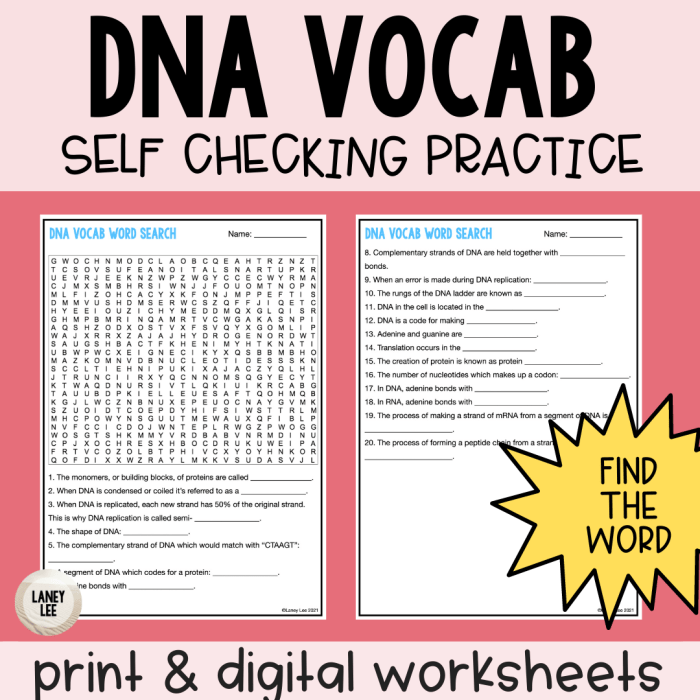
DNA task cards are a versatile resource that can be incorporated into lesson plans and assessments in various ways. They can be used as:
Using the Answer Sheet for Tracking and Feedback
The answer sheet accompanying the DNA task cards serves as a valuable tool for tracking student progress and providing targeted feedback. Teachers can:
Additional Resources
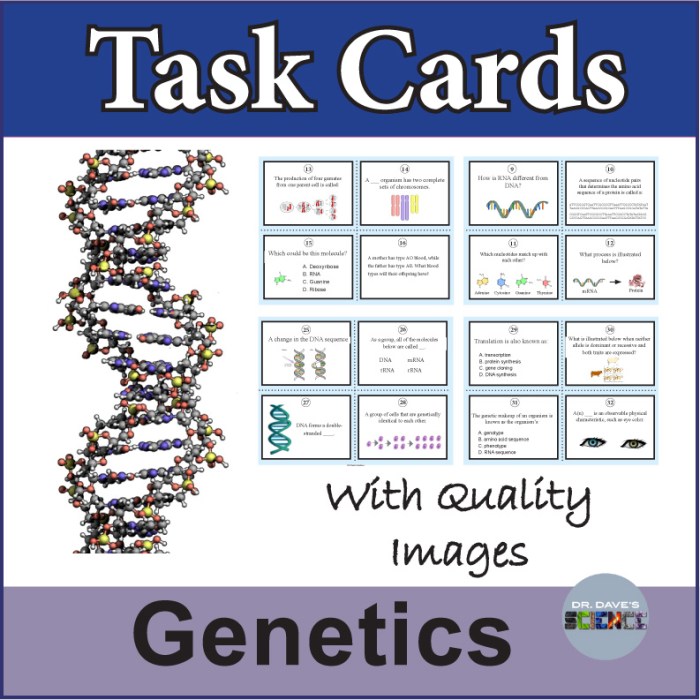
In addition to the task cards and answer sheets provided, here are some additional resources that offer further information on DNA task cards and answer sheets, tailored specifically for educators and students.
For Educators
For Students
Key Questions Answered
What are the benefits of using DNA task cards in the classroom?
DNA task cards offer numerous benefits, including promoting active learning, enhancing critical thinking, reinforcing key concepts, and fostering collaboration among students.
How do I create an effective DNA task card answer sheet?
An effective answer sheet should be well-organized, provide clear instructions, and include space for students to record their responses. Consider using different sections for different topics and providing answer choices for multiple-choice questions.
How can I assess student learning using DNA task cards?
To assess student learning, you can use a grading rubric that evaluates accuracy, completeness, and critical thinking. Consider providing feedback on both correct and incorrect answers to help students identify areas for improvement.
